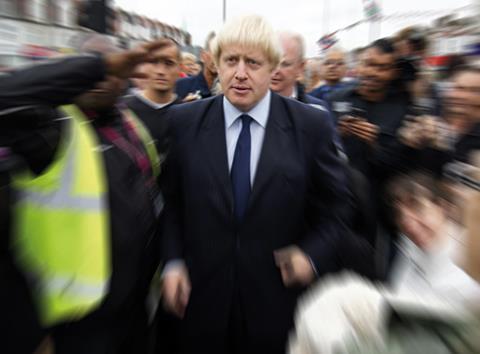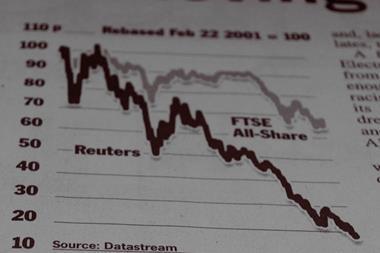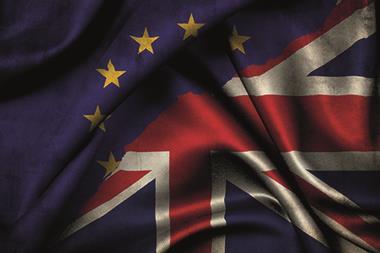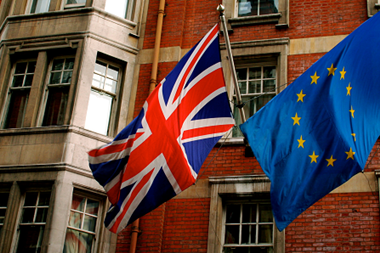So it’s all over. The claims and counterclaims, threats and repudiations and endless hours of TV debate are all mercifully behind us.

London, Scotland and Northern Ireland all voted to stay, albeit for differing reasons, but the rest of the country focused on one issue above all others and found the political establishment wanting.
They did not believe David Cameron’s promise to cut net migration to tens of thousands, and they were unimpressed by Jeremy Corbyn’s apparent unwillingness even to see the issue as a threat.
Both political parties are now in deep trauma. The Tories will elect a new leader by the end of September with the two leading candidates, as Property Week went to press, being Boris Johnson and ABB - Anybody But Boris.
Labour are irrevocably split between a membership that would re-elect Jeremy Corbyn given the chance and a parliamentary party who know he’s a decent man but a born loser. Lack of political leadership will not help us in the vital weeks ahead.

David Cameron has rightly decided that the UK will trigger article 50 of the Lisbon treaty to start the two-year negotiating period only when his successor is in place.
Meanwhile, leading eurocrats such as Juncker and Schulz talk tough because they are terrified that the whole EU edifice will come crashing down now their battlements are breached.
They know the EU is even less popular among French voters than it is in the UK and the last thing they want is a domino effect.
Brexit’s aftershock for Europe
Serious figures such as Angela Merkel are striking a different tone, urging calm and caution. She knows that 20% of Germany’s auto industry exports are to the UK. In fact, the rest of the EU exports as much to us as it does to the US. The balance of trade is heavily in the rest of the EU’s favour.
So this is not a one-way negotiation in which we take what is offered. It will see both sides working to do as little harm as possible to the current open trade arrangements. Cutting your nose off to spite your face is not unknown in EU politics but financial logic will ultimately prevail.
The pound had a bumpy but not calamitous ride early on. The FTSE took a predictable tumble, from which it is already recovering. The chancellor and the Bank of England have made clear that despite the former’s previous warnings of imminent catastrophe there will be no panic response, and that they have a plan to protect the economy. There will be further market movement for several weeks, but at this stage it looks as if the worst turbulence is behind us.
![]()
As far as commercial property is concerned, dollar investors have a significant ‘buy’ opportunity. There may be some movement in financial services jobs in London but that will be a key negotiating point on which the UK will want early progress. Our economy continues to be in better shape than most of our competitors’. The top end of the residential market will continue to contract, but below £600/sq ft demand still far outstrips supply.
There was always going to be some turbulence and it may last some months. Domestically, the UK must presumably erect a serious border between Northern Ireland and the Republic just when so much effort has been expended to bring the two communities together.
The Scots are unhappy but a second referendum there is unlikely, at least for now. We will need to decide how to control migration either through visas or a points system. Neither is as easy as it sounds.
But there are big opportunities ahead too. Completing trade deals with the US, India and China. Cutting corporation tax to 10% as Rohan Silva has proposed would send a powerful message to overseas investors that the UK is open for business.
The message to this industry is ‘keep calm and carry on’. Astonishingly, the world is still turning.
Steve Norris is chairman of Soho Estates and BNP Paribas Real Estate




























No comments yet